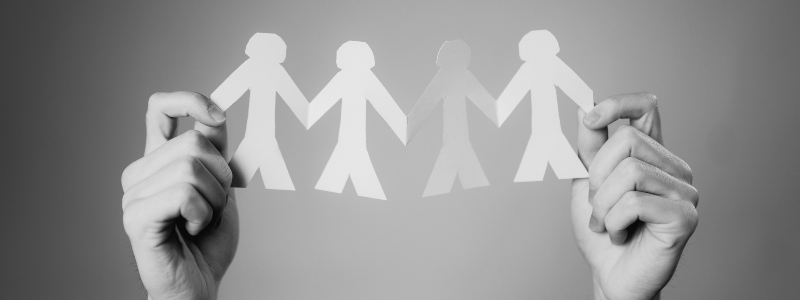Starting a new psychotherapy group always gives me a sense of excitement. Until everyone is in the room together you never quite know what’s going to happen. And of course, that’s just the beginning.
Growing a group
In group analysis we often talk about ‘growing’ a group. It’s a useful way to describe the process. Tilling the ground, adding nutrients to the soil, planting seeds, watering, feeding; all these gardening activities symbolise the tasks involved in trying to create a nurturing environment for individuals to come together and flourish as a therapy group.
Firstly, finding a good setting is very important. (I am lucky to already have a lovely group room at Brighton and Hove Psychotherapy in which my two current groups meet, so this isn’t a task I have to be concerned about).
After the setting I settle on a regular time and day of week for the group to meet. And then I see if I can find individuals who might be interested, can make that time, and who I feel might benefit from a group.
Suitability for group therapy
Although exploring who will join the group means giving time and support for potential members to work out if a group will be right for them, I will also be thinking about their suitability for group therapy, and this particular group.
A fundamental question in my mind will be about the level of interest the person might have in themselves and others. Curiosity is vital for individuals to benefit from the group and, also, for the group to benefit from them.
And it needs to be the right time. For e.g. someone who has had a very recent trauma or bereavement, might need to get help with this first before they are ready to be in a group.
The joining process – boundaries and culture
The group culture is important in making the group feel safe and therapeutic so there are certain boundaries that people need to agree to – e.g. confidentiality etc – before joining.
See my blog on The Process of Joining a Therapy Group for more detail about this and other aspects of the joining process.
Differences between joining a new group and an established one
There are certainly some differences in joining a new group than an established one. One of the features – if not advantages – is that you are at the core of the experience from the start and will inevitably have influence in shaping how the group forms early on. It’s perhaps akin to being the oldest child, as opposed to children who come after who may never quite fully share and know all the family history.
The first session
The first session of a new group is nerve racking for everyone – including me! Generally, it goes much better than people expect. Inevitably it can feel a bit awkward at first, but once these initial steps have been taken people usually do start to feel comfortable enough to begin opening up. Often people are surprised by how intimate it can feel so early on.
Common ground is usually found and, for many, it’s a major relief from the outset to see how their worries and fears become quickly normalised.
New group starting
I will be starting a new psychotherapy group later this year, running Thursday mornings on a weekly basis. If you’d like to find out more or explore the possibility of joining, do get in touch with me through my practitioners’ page.
Claire Barnes is an experienced UKCP registered psychotherapist and group analyst offering psychodynamic counselling and psychotherapy to individuals and groups at our Hove practice.
Further reading by Claire Barnes –
The process of joining a therapy group
What is ‘othering’ and why is it important?
How psychotherapy groups can help change our internalised family systems
Is a Therapy Group Right for Me? Am I Right for a Therapy Group?

Leave a Reply